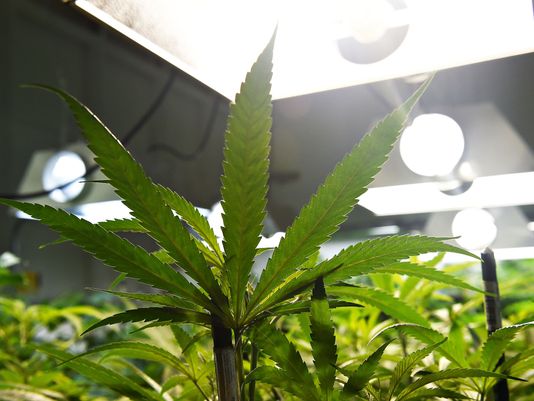With the holidays upon us and friends and family gathering to celebrate, thousands of people around the United States are setting out an empty chair with the photo of an absent child, parent, spouse or friend. Pinned to the photo, is one of these four phrases: incarceration, accidental overdose, drug war violence, and stigma.
The Empty Chair at the Holiday Table campaign was started in 2012 by Moms United to End the War on Drugs, whose aim is to raise awareness, remove the stigma of addiction and incarceration, and mobilize to end the war on drugs. Thirty-five U.S. states, Mexico, and Canada are now participating in the campaign.
“The holidays, naturally, are an especially painful time for families missing their loved ones,” said Gretchen Bergman, founder of Moms United to End the War on Drugs and A New PATH. Both of Bergman’s sons struggled for years with addiction and incarceration.
“I’m one of the lucky moms. My sons survived a retributive criminal justice system,” Bergman, of San Diego, told Weedmaps News. “While serving time in prison for simple pot possession at the age of 20, one of them got deeper into drugs, and recycled in and out of the system for nearly two decades.”
Lizzie Stewart set up an empty chair for her son, Jeremy, who was the first non-violent victim of California’s three strikes sentencing law, enacted in 1994 and viewed as among the most draconian in the country.
“Setting up the empty chair with Jeremy’s photo helped all of us, but especially his two young children,” Stewart, a registered nurse in San Diego, told Weedmaps News. “This is the first Christmas he will spend with us.”

Photos in an empty chair signify family members missing from holiday celebrations because of repercussions from the war on drugs. Elon Burns is pictured here. (Photo courtesy of A New PATH)
Jeremy Stewart was granted clemency by Democratic California Gov. Jerry Brown and released on Dec. 29, 2017, after serving eight years.
Then there are groups that seek to make life better for non-violent pot prisoners still serving time. Among them is Freedom Grow, co-founded in 2007 by Stephanie Landa and Dina Browner, aka Dr. Dina, who is not a physician but was given the nickname by her friend Snoop Dogg.
Landa, with permission from San Francisco under Proposition 215, had been growing medicinal marijuana just two blocks from a local police station in the city for several years. The police, Landa said, had told her she’d feel safer with them nearby, which she was until 2002 when a cross-designated policeman notified federal agents who then raided her grow operation. She was arrested and served five years in federal prison.
“One of the most important things in the lives of prisoners, which most people don’t realize, is the commissary,” Landa told Weedmaps News.
“If there’s no money on the books, a prisoner can’t get even the basics like soap, shampoo, a toothbrush and paper to write letters,” said Landa, whose son was 18 when she went into prison. It’s especially important around the holidays when new items appear, like green tea, and when you want to call home to family and friends.”
During the December holidays, federal prisoners are given an additional 100 minutes — beyond the normal 300 — of telephone use, but it costs.
“After I got out, I was diagnosed with liver, spleen and stomach cancer from the black mold in prison,” said Landa, who told Weedmaps News she treated herself with medical cannabis and is now cancer-free.
“So, when I didn’t die, I swore I was going to dedicate my life to helping non-violent federal pot prisoners.”
Landa started selling slushies and hot chocolate at cannabis events in California, usually collecting very little. Recently Freedom Grow received a significant donation from Organa Brand.
“We give to everyone we can … at least $50 a month to the neediest prisoners, some of whom are in for life without parole for pot — just pot.”
One of Freedom Grow’s incarcerated recipients told Landa that her work “brings light into a dark cell.” She put the words on a T-shirt.
Meanwhile, Amy Povah, founder and director of the CAN-DO Foundation, which is currently assisting numerous pot prisoners to get their petitions to the White House in a bid for a December clemency, believes there is hope for the holidays.
“I’m still hopeful that President Trump will release a list of clemency recipients before December 25th,” Povah told Weedmaps News. “Let’s not forget that last year he granted clemency to [Iowa meatpacking executive] Sholom Rabashkin on Dec 20th.”
Povah noted that it was unprecedented for a president to issue a commutation in the first year of a first term.
“The Rabashkin decision was before Trump commuted the sentence of Alice Marie Johnson in June 2018, which Kim Kardashian embraced,” Povah said. Kardashian visited the White House to urge Trump to help. As Johnson’s life sentence on a non-violent drug conviction was commuted, the action, said Povah, “made ‘clemency’ a household word.”











